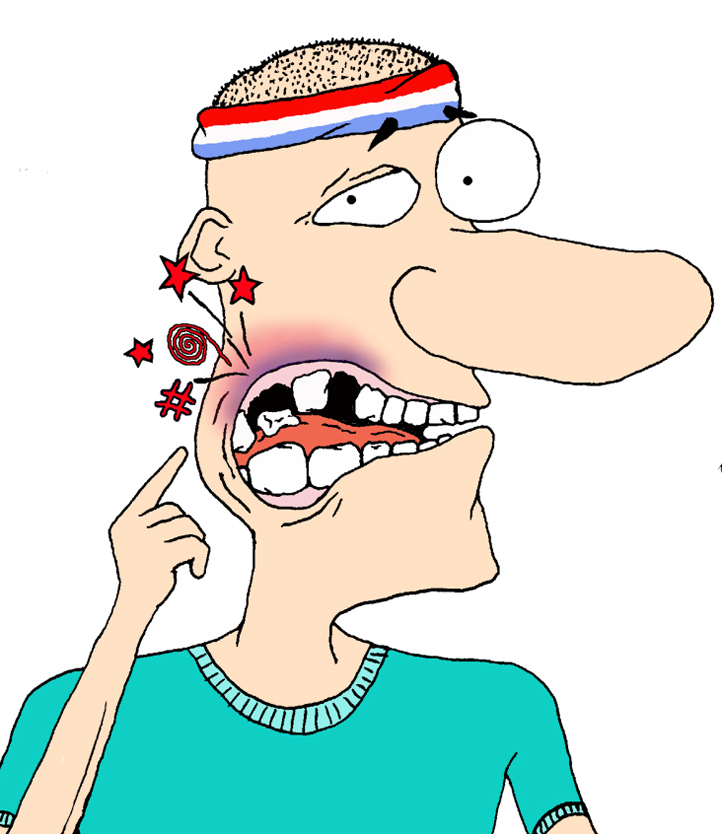8 Toothache Relief Tips For Pregnant Women

Pregnancy is a beautiful and life-changing experience, but it can also come with its fair share of challenges, including toothaches. Hormonal fluctuations during pregnancy can lead to changes in the mouth, making teeth more susceptible to decay and sensitivity. However, when a pregnant woman experiences a toothache, it can be a source of significant discomfort and anxiety. The good news is that there are several ways to alleviate toothache pain during pregnancy, and we will explore eight of these tips in this article.
Understanding Toothaches During Pregnancy
Before diving into the relief tips, it’s essential to understand why toothaches might occur during pregnancy. The hormonal changes, particularly the increase in progesterone, can affect the gums and teeth, leading to gingivitis or gum inflammation. This condition can cause pain, swelling, and sensitivity in the teeth and gums. Additionally, pregnancy cravings and morning sickness can lead to poor oral hygiene, further increasing the risk of tooth decay and toothaches.
1. Maintain Good Oral Hygiene
Good oral hygiene is crucial during pregnancy. Brushing your teeth at least twice a day with a fluoride toothpaste and flossing once a day can help prevent tooth decay and gum disease. It’s also important to choose a toothbrush with soft bristles to avoid irritating your gums. Regular dental check-ups are also vital; in fact, the American Dental Association and the American Congress of Obstetricians and Gynecologists recommend that pregnant women visit their dentists regularly.
2. Use a Desensitizing Toothpaste
Desensitizing toothpaste can help alleviate tooth sensitivity, which is a common complaint during pregnancy. These toothpastes contain ingredients like strontium chloride or potassium nitrate that help block the dentinal tubules in the teeth, reducing the sensitivity. It’s recommended to use these toothpastes as directed and in consultation with your dentist.
3. Apply a Cold Compress
Applying a cold compress to the outside of your cheek near the aching tooth can help reduce pain and swelling. Wrap an ice pack or even a bag of frozen peas in a cloth to avoid direct contact with your skin, and apply it for 15-20 minutes at a time. This simple remedy can provide immediate relief from toothache pain.
4. Rinse with Salt Water
Rinsing your mouth with warm salt water several times a day can help reduce swelling and ease pain. Mix 1⁄2 teaspoon of salt with 8 ounces of warm water and swish the solution around your mouth, making sure to reach the affected area. Salt water has natural antibacterial properties that can help combat infections and reduce inflammation.
5. Avoid Trigger Foods
During pregnancy, it’s essential to avoid trigger foods that can exacerbate tooth sensitivity and pain. These include extremely hot or cold foods and beverages, as well as sugary and acidic foods that can contribute to tooth decay. Opting for a balanced diet that is rich in calcium and vitamins can help maintain oral health.
6. Consider Over-the-Counter Pain Relievers
If your toothache pain is severe, you may need to consider over-the-counter pain relievers. However, it’s crucial to consult with your healthcare provider before taking any medication during pregnancy. They can recommend safe options and dosages. Typically, acetaminophen (Tylenol) is considered safer than ibuprofen (Advil, Motrin) during pregnancy, but always follow your provider’s advice.
7. Practice Good Diet and Nutrition
A healthy diet rich in fruits, vegetables, whole grains, and lean proteins can support oral health. Foods high in calcium, such as milk, cheese, and leafy greens, are particularly beneficial for maintaining strong teeth and bones. Avoiding sugary snacks and drinks can also help prevent tooth decay.
8. Stay Hydrated
Staying hydrated is vital for overall health, including oral health. Drinking plenty of water helps rinse away bacteria and food particles from your teeth, reducing the risk of decay and sensitivity. Additionally, hydration can help prevent morning sickness, which can be harmful to your teeth due to the acid content.
Conclusion
Toothaches during pregnancy can be uncomfortable and concerning, but there are several strategies to manage and alleviate the pain. By maintaining good oral hygiene, using desensitizing toothpaste, applying cold compresses, rinsing with salt water, avoiding trigger foods, considering over-the-counter pain relievers under medical guidance, practicing good diet and nutrition, and staying hydrated, pregnant women can reduce their risk of toothaches and ensure a healthy, happy pregnancy.
Can I go to the dentist while pregnant?
+Yes, it’s not only safe but also recommended to visit your dentist during pregnancy. In fact, the American Dental Association and the American Congress of Obstetricians and Gynecologists encourage pregnant women to get dental check-ups to prevent and treat any oral health issues that may arise.
How can I manage tooth sensitivity during pregnancy?
+Managing tooth sensitivity during pregnancy involves a combination of good oral hygiene practices, such as brushing with a soft-bristled toothbrush and fluoride toothpaste, and using desensitizing toothpaste. Avoiding trigger foods like hot, cold, sugary, or acidic foods and beverages can also help minimize sensitivity.
Are there any home remedies for toothache relief during pregnancy?
+Yes, several home remedies can provide relief from toothache pain during pregnancy. These include applying a cold compress to the affected area, rinsing your mouth with warm salt water, and avoiding foods that can trigger or worsen sensitivity and pain. However, if the pain persists or worsens, it’s crucial to consult with your dentist or healthcare provider for proper diagnosis and treatment.